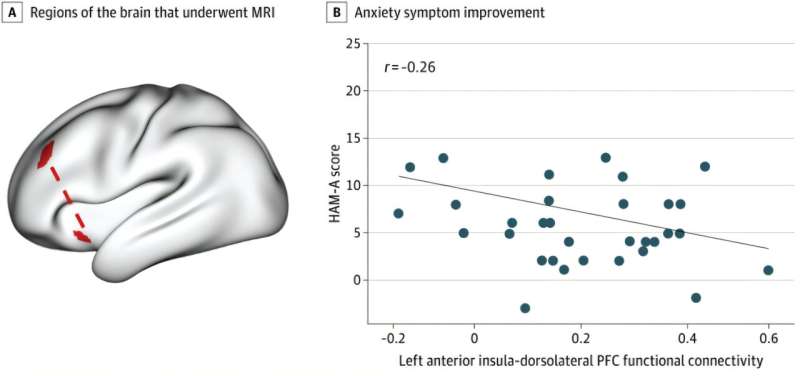The preliminary study suggested that young people with weaker connections between two brain areas involved in both attending to and regulating responses to anxiety were more likely to benefit from a self-guided anxiety care app than those with stronger connections.
The study, published in JAMA Network Open, looked at data from a subset of clinical trial participants who agreed to undergo a brain MRI before using the anxiety care app developed by the investigators.
The app, called Maya, is essentially a course in cognitive behavioral therapy, a gold standard psychotherapeutic intervention that provides users with skills to support them in shifting their thinking, completing challenging behaviors and learning new ways to cope. The interactive platform guides young adults with anxiety through videos, exercises and educational content.

